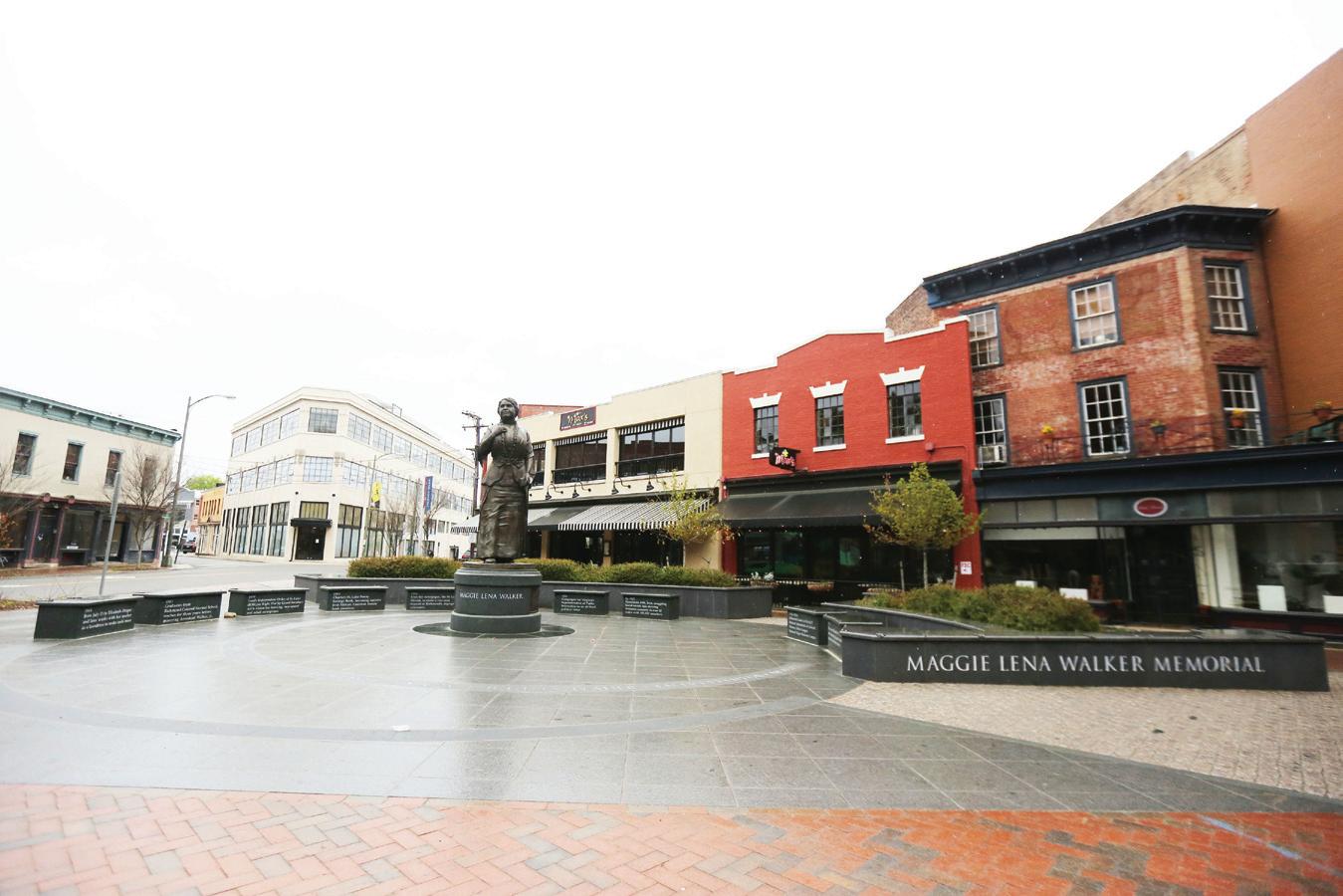
5 minute read
Listen to infectious disease specialists and public health experts
Social distancing has mixed practice around Richmond
By Jeremy M. Lazarus
Advertisement
Walk into any retail store, and it’s clear that the messages about social distancing and personal protection have penetrated only so far.
While some stores, such as Kroger, Walmart and Ellwood Thompson’s, are installing plastic barriers — sneeze guards — between cashiers and customers in checkout lines, it’s hit or miss whether clerks are wearing gloves; almost none are wearing masks.
Some frequently use hand sanitizer as they check out customers; others do not.
Despite messages about coronavirus spread, Holly Jackson, who was gloveless as she worked a customer service booth at a local store, downplayed the threat.
“I’m not scared,” said the 25-year-old Richmond native. For Jerry Blow, that attitude is the reason he required his niece, Jawana Kearney, to temporarily give up her job at Walmart. Ms. Kearny lives with Mr. Blow and his wife, Inez. “My wife has cancer and a weakened immune system because of the disease and the treatment,” he said. “We couldn’t have Jawana coming home from Walmart after waiting on 100 customers, who might spread the virus to her. She was allowed (at work) to wear gloves but not a mask or goggles. We had to take precautions.” Mr. Blow said his niece took an unpaid leave. “Now the company is saying she can return and wear the protection, and she plans to do that once the sneeze guards are in place,” he said.
The social distancing message has not gone over well on GRTC buses. On some lines, 20 or more people pack the seats and the back in taking advantage of fare-free rides, drivers report.
“Some people are riding just for something to do. They just want to ride. Others have a purpose. I pick up one woman every day who brings her bags and containers. She knows every place that offers free food, and she is out every day to get a share for herself and her neighbors,” said a driver, who spoke on condition of anonymity.
That driver and others spoke of their concern about the potential spread of the virus given the large number of passengers who are riding. Most of the drivers come to work carrying bottles of Lysol, Clorox or other cleaning products they have purchased. “When I reach the end of the line, I’m wiping down the back door, the poles and the metal seat parts where people hold on,” said another driver, who also spoke on the condition of not being identified. “I’m trying to keep my passengers and myself safe. “Sure, the brass are issuing announcements to the public telling everyone about how they are disinfecting most of the buses every night. But from what I see, it doesn’t seem likely. My bus is still pretty dirty.
“But even if what they’re saying is accurate, what they’ve done lasts until I start picking up passengers. I don’t think you can be too cautious.”
Offices and manufacturing plants that remain open also are hit and miss when it comes to disinfecting workspaces and protection of workers. While some places have taken the threat seriously — most notably Altria, which shut down its South Side cigarette factory after two workers tested positive for COVID19 — others keep operating as if the threat is a myth.
Karol Adams said he was threatened with dismissal when he raised concerns about the lack of protective gear and distancing for workers like himself at LBP Manufacturing, a food container production factory in South Side. He was alarmed that up to 50 employees at a time were using the break room at the plant. “It’s just not right,” said Mr. Adams, who worried he had caught the virus when he began hacking and coughing.
Eighth District City Councilwoman Reva M. Trammell visited the plant during a shift change and noted that the workers were massed together without gloves or face masks.
“It’s like the company thinks that nothing has changed,” she said.
Until Monday, many of the city’s parks were still attracting groups. That may be reduced beginning this week as Mayor Levar M. Stoney piggybacked Gov. Ralph S. Northam’s stay-at-home order on Monday and closed city playgrounds and basketball and tennis courts at public parks and schools and banned swimming, sunbathing and group gatherings in James River Park.
Before and after coronavirus
Life as we know it has changed since the coronavirus pandemic. We took for granted the grand outdoor festivals, the events along the waterfront and the public ceremonies that drew thousands of people. Now, under Gov. Ralph S. Northam’s executive order to stay at home and away from groups, those areas are largely empty as people try to prevent the spread of the potentially fatal disease. These Free Press photos show the “before” and “after” impact of coronavirus on our city.
Before After
A crowded Brown’s Island in 2015 during the opening ceremony of the UCI Road World Championships cycling competition held in Richmond in September 2015. Brown’s Island on April 1, 2020.
Sandra Sellars/Richmond Free Press Sandra Sellars/Richmond Free Press
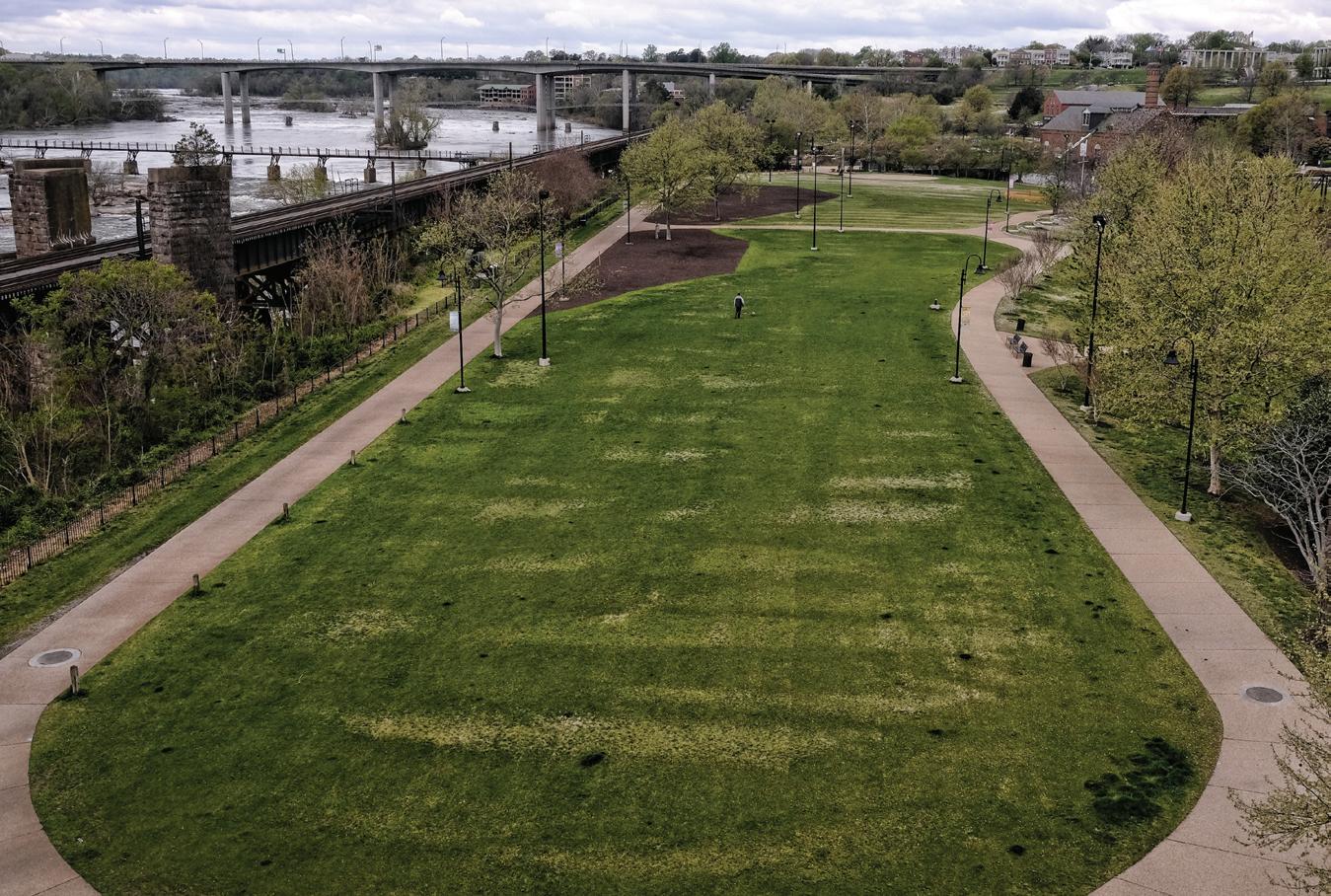
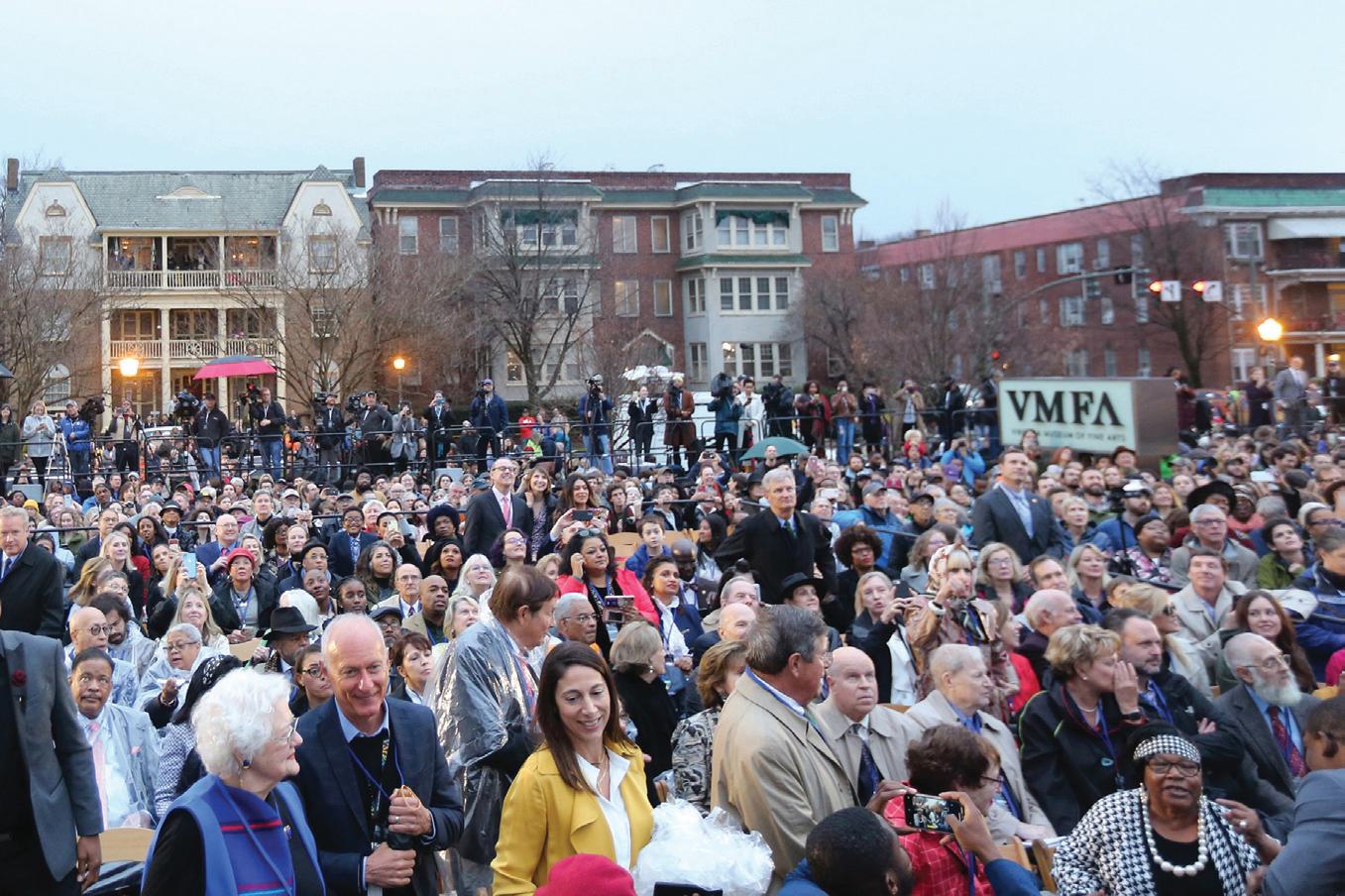
Hundreds of people gather on the grounds of the Virginia Museum of Fine Arts for the unveiling of artist Kehinde Wiley’s equestrian statue, “Rumors of War,” on Dec. 10, 2019. The VMFA grounds on March 31, 2020.
Regina H. Boone/Richmond Free Press
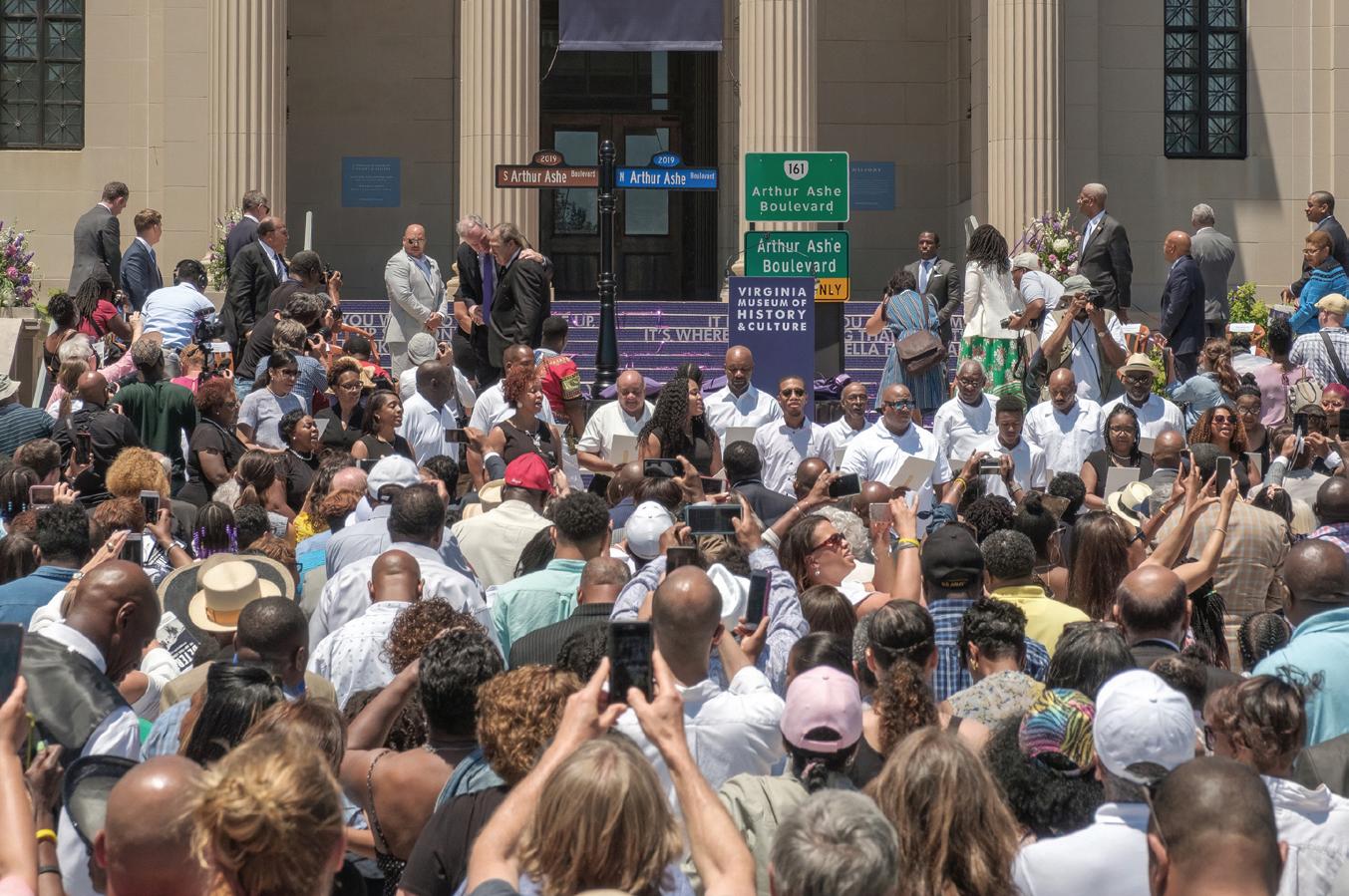
Thousands celebrate outside the Virginia Museum of History & Culture as the boulevard out front is officially renamed in honor of Richmond native and late tennis great Arthur Ashe Jr. The date: June 22, 2019. The museum and Arthur Ashe Boulevard on March 31, 2020.
Ava Reaves
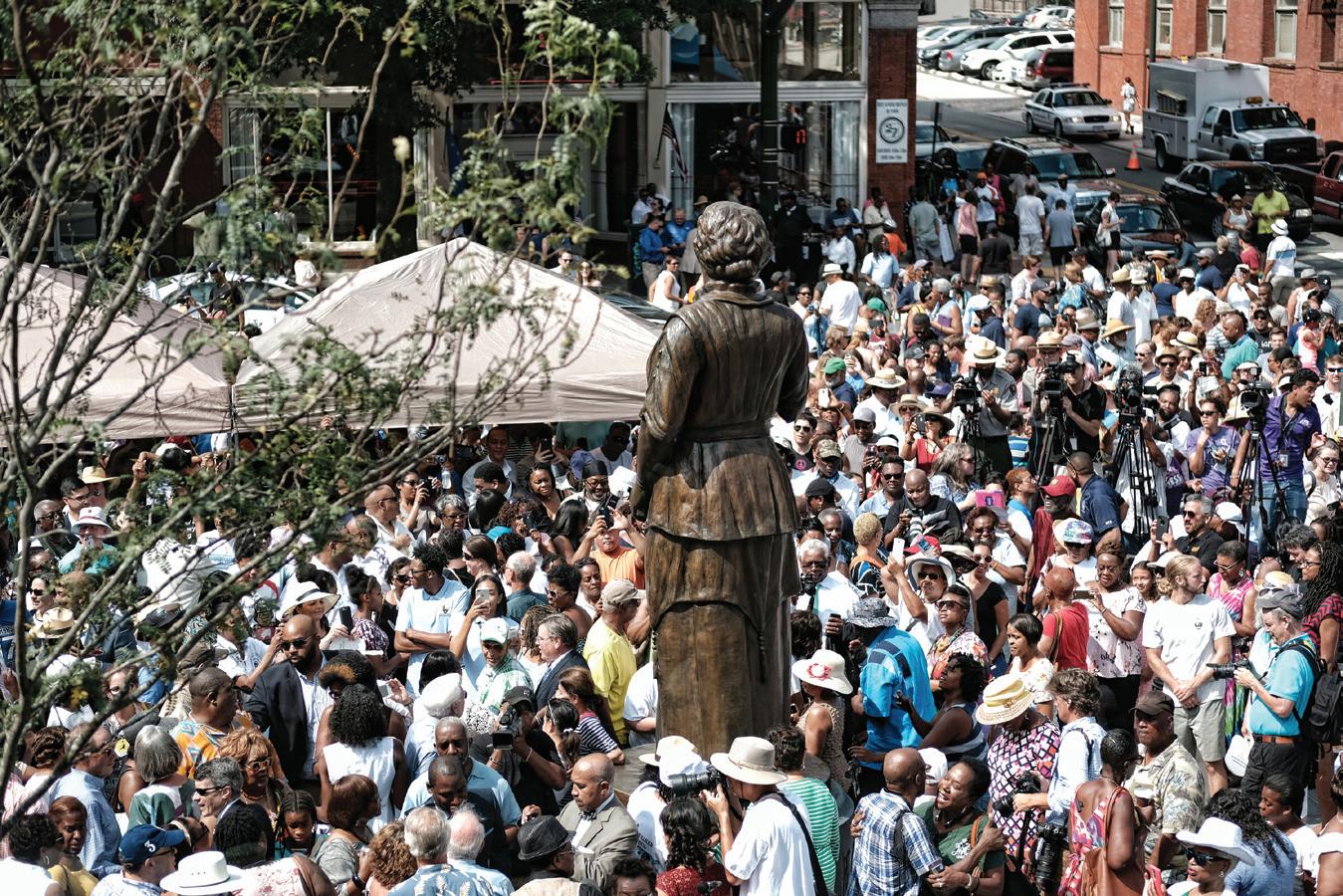
The unveiling of the statue of Richmond banker and pioneer Maggie L. Walker at Broad and Adams streets in Downtown draws hundreds of people on July 15, 2017, what would have been Mrs. Walker’s 153rd birthday. The Maggie L. Walker statue site on March 31, 2020.
Sandra Sellars/Richmond Free Press Sandra Sellars/Richmond Free Press

Sandra Sellars/Richmond Free Press

